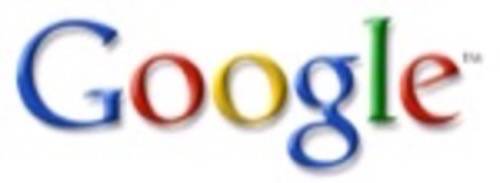It’s not every day you get to watch the birth of an Internet meme, but yesterday, I was there at the moment of conception. I didn’t give birth to it but I certainly played a completely inadvertent and circumstantial part.

Facebook and AOL had
their partnership and I decided the news merited more than the two paragraph treatment I saw everywhere else. So I embarked on a diatribe about how Facebook was trying to be our “One True Login” – and unknowingly set in motion what has become
ReadWriteWeb has ever seen. But how did this happen and why?
Within a half an hour of posting, the number of visitors had skyrocketed. It looked like a real winner. An hour later, it had reached the number of visitors an average post might see in an entire day. I figured I’d hit a home run.
But then the comments started rolling in.
“When can we log in?” asked one commenter.
“I WANT THE OLD FAFEBOOK BACK THIS SHIT IS WACK!!!!!” complained the next.
At first we wondered if it could be a giant, orchestrated prank. We weren’t sure who we might have offended, but obviously it was a premeditated assault. When we looked at our traffic, however, we didn’t see any of the usual suspects, just two little words on a very big website: “Facebook login” and Google. The post had become the number two search result.
By the end of the day, the post had several hundred comments and our back-channel chat room was still debating whether or not it could all be real.
It was like we had unearthed a long-lost city, the Atlantis of the Internet. But instead of treasures and gold we’d found a steady deluge of confused and frustrated users who had tried everything they knew to do and just wanted to log in to Facebook, damnit. But how had this happened? It certainly wasn’t that thousands and thousands of people had just started searching for “facebook login” yesterday. This stream of people has been there all along and something is broken.
Google had completely failed its users. It put us, with a post about how an AOL partnership foreshadowed Facebook becoming the de facto user database, above the most logical search result possible – Facebook’s login page.
While for us this was completely random, other search results show that this is actually a space that is otherwise intentionally occupied by sites trying to siphon off this traffic and profit from it. I don’t think the first search result for “Facebook login” was actually English, and the one that followed wasn’t either, but those two key words are used over and over.
By the next morning, the scale had tipped. News of the epic thread had started making its way around the social web, being retweeted across the Twitterverse, posted by early adopters on Buzz and submitted to sites like Reddit, Digg, StumbleUpon, HackerNews and Fark.
“No, really,” everyone seemed to be saying, “You GOTTA see this one.”
Suddenly, the two worlds collided. The tech savvy ran head-on into the tech illiterate and mockery and disbelief started to overtake confusion as the general tone in the comment thread. As the post made its way around the web, other comment threads, like those on Reddit and MetaFilter, began mimicking the now infamous comments. I suddenly realized that we might be standing at that flash point, that moment where it begins – the immaculate conception of an Internet meme. I’ve always wanted to be there at that moment. I’ve always wondered about the first person that saw a lobster and said, “You know what? I’m going to eat that.”
“I LIKE THE NEW ALL-BLUE FACEBOOK BUT CAN I JUST LOG IN NOW PLEEEEEZE?????!!!11” reads one comment on MetaFilter.
Another comment on Reddit reads, “IS THIS THE ARTICLE!!? ALL I SEE IS COMMENTS!!!!! HOW COME WHEN I TRY TO LOG IN I PEE ON MYSELF AND PASS OUT?!?? I LIKED REDDIT BEFORE THE PEE!!!”
One person has even written a sonnet, detailing the plight of the lost Facebook users.
While we mock those users, the simple fact is they haven’t necessarily failed, something failed them. With all of our talk about the semantic Web and search engine optimization and tailoring search results to the individual user, there are thousands upon thousands of users performing the same simple search and following the same wrong road. If this were a standard traffic sign misdirecting this many people, it would have been pulled down long ago. There would have been outraged citizens at town meetings and special reports on the five o’ clock news.
So, when five years down the road someone, somewhere, in a completely unrelated comment thread says “i need the old facebook this new one is very bad bbbbbbbbbbuuuuuuuuuuuuuuuuuuuu!” I will be happy to say that I was there – I was around for the birth of that Internet meme. But I also hope that, by then, we’ve addressed the problem at the core. This is the Internet and these are its users.
If this many of them can’t login to Facebook by typing that into Google and clicking on the first thing they see, maybe it’s not them that are wrong – but Google.
















